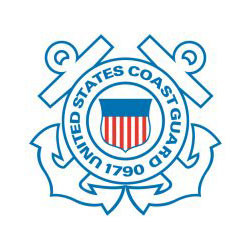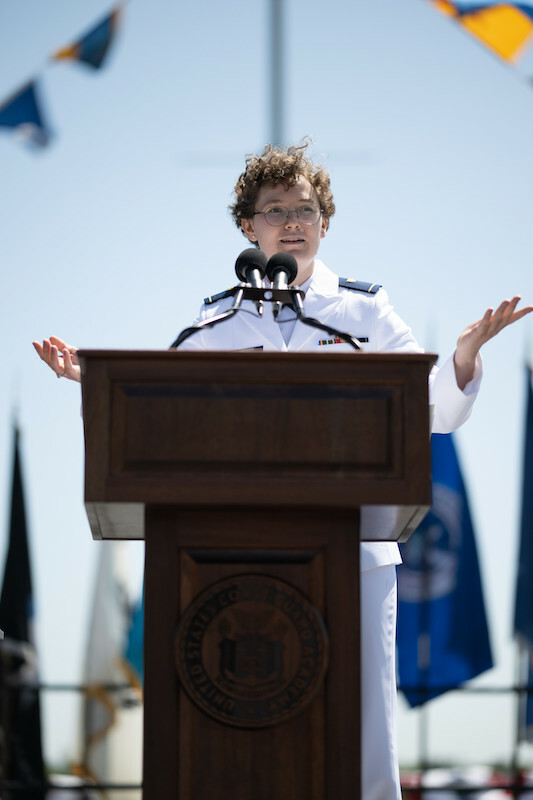Life as a cadet at the U.S. Coast Guard Academy is not meant to be easy. So, when a student earns a near perfect grade point average and receives two prestigious scholarships to pursue advanced educational opportunities, it is a significant accomplishment to say the least.
Add to that being named the distinguished graduate, the cadet with the highest military precedence average, which combines the academic, military, and physical components of the entire 200-week program.
Christine Groves, a mechanical engineering major from Austin, Texas, has recently earned all of these accolades.
In 2022 she received a Truman Scholarship, the premier graduate fellowship in the nation for public service leadership which is granted to those who demonstrate leadership potential, academic excellence, and a commitment to public service.
Earlier this year, she was also awarded a Fulbright scholarship, which is a graduate education program designed to improve intercultural relations, cultural diplomacy, and intercultural competence between the U.S. and other countries.
“Christine Groves is a special talent,” said Dr. Amy Donahue, Academy provost. “This has been apparent to us throughout her cadet career as we have marveled at her accomplishments, and it is very gratifying to have her recognized with two preeminent prestigious scholarships. She is the first cadet to achieve this, and we couldn’t be prouder of her.”
While studying at the Academy, Groves conducted research on renewable energy technologies to address environmental pollution and climate change, but her work extended beyond the classroom as well.
Working with the Coast Guard Office of Inclusion and Diversity, she provided recommendations to support transgender members. In support of the LGBTQ+ community, Groves founded the Academy’s Transgender Committee to promote gender equality and build an inclusive and welcoming environment in the corps of cadets.
One of the pillars of the Academy mission is to develop leaders “in the service of their country and humanity”. Her future plans embrace those concepts and may even help future generations as she sets out to pursue a master’s degree in sustainable energy engineering, with a research focus on direct air carbon capture technologies.





